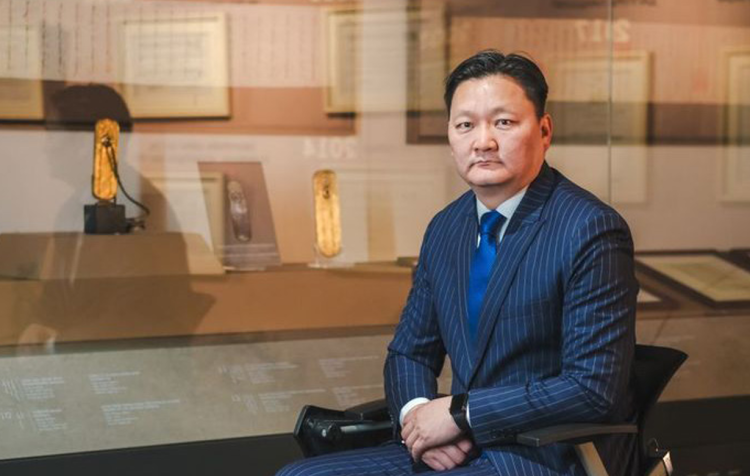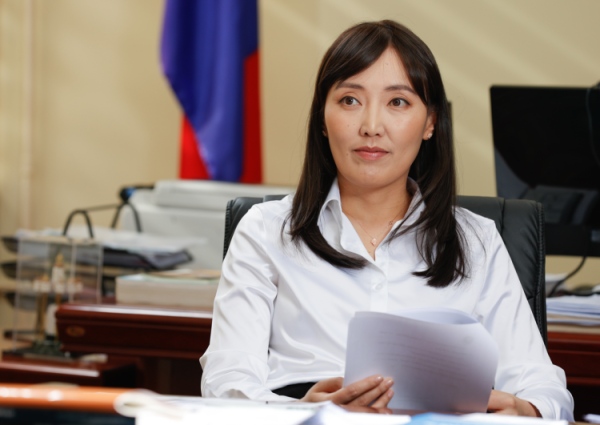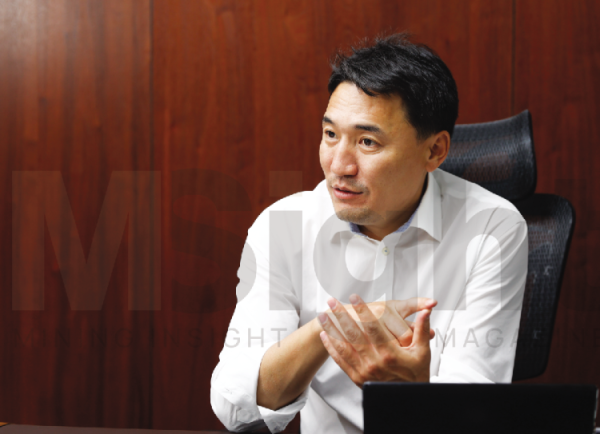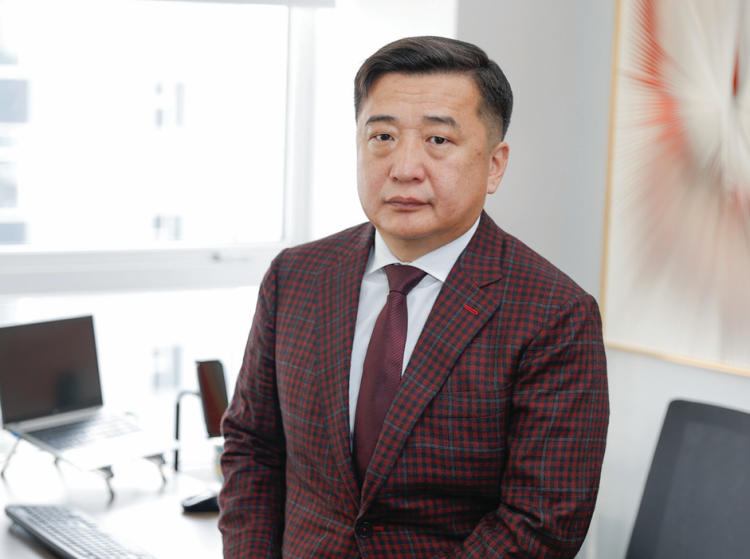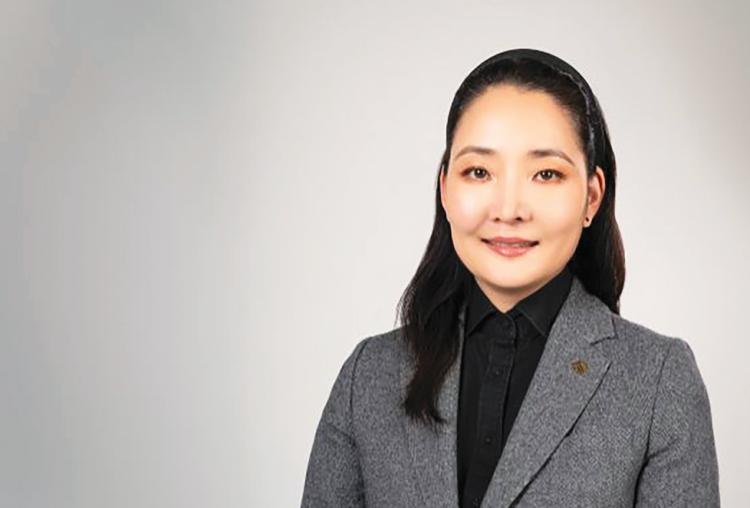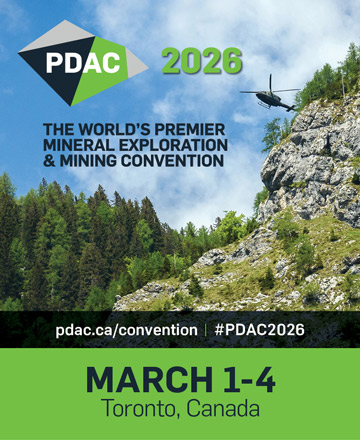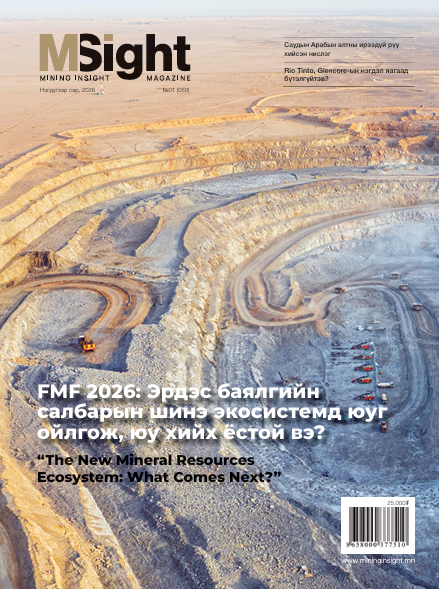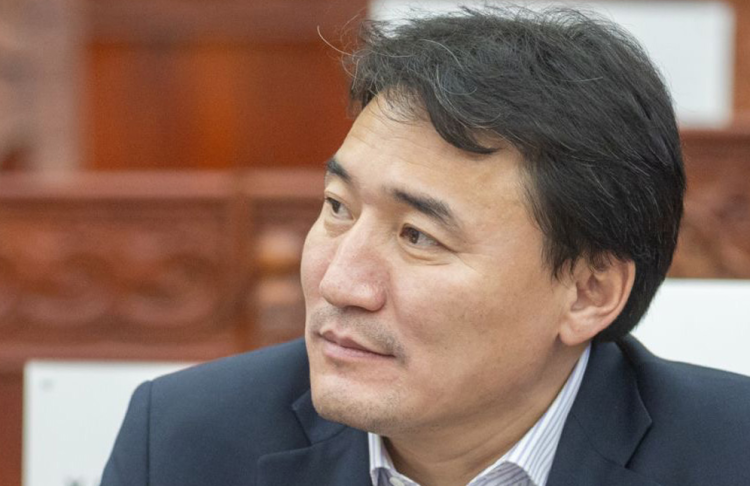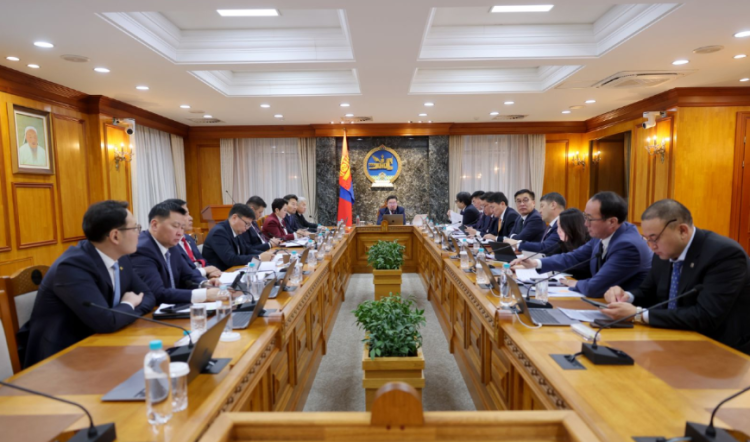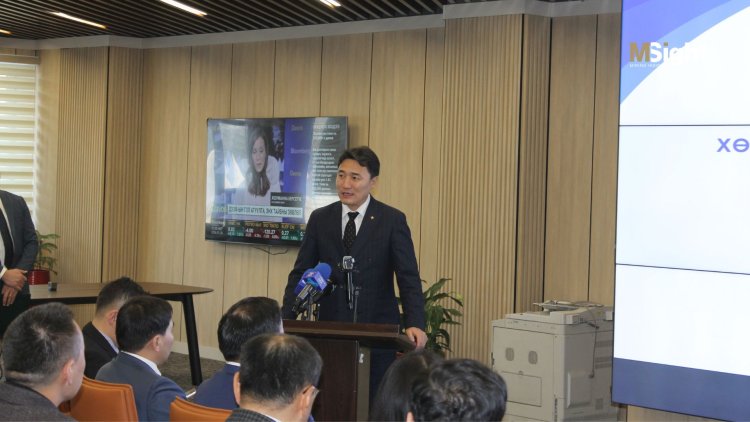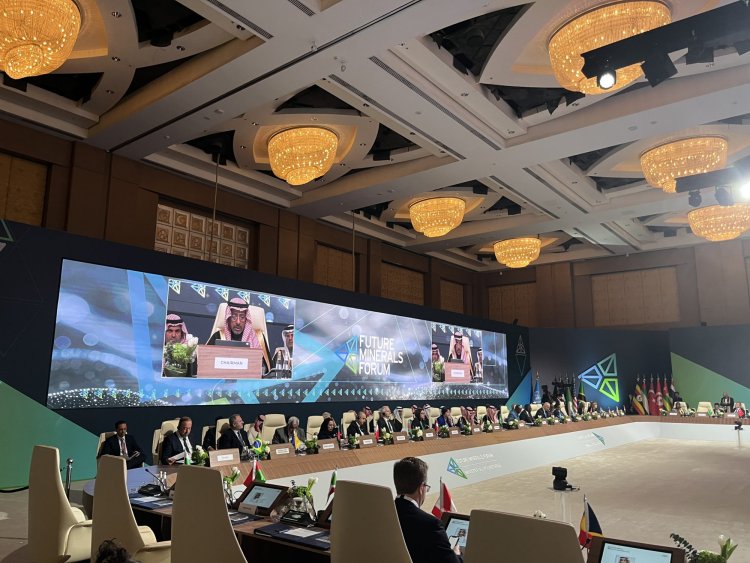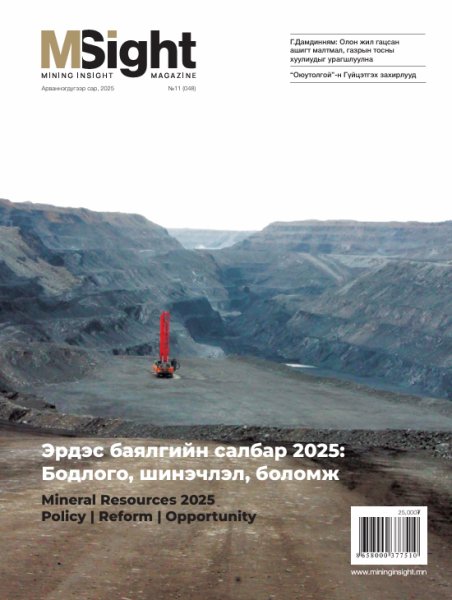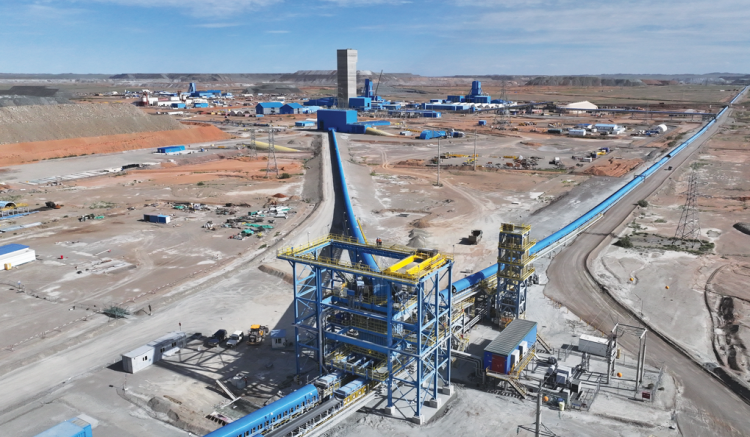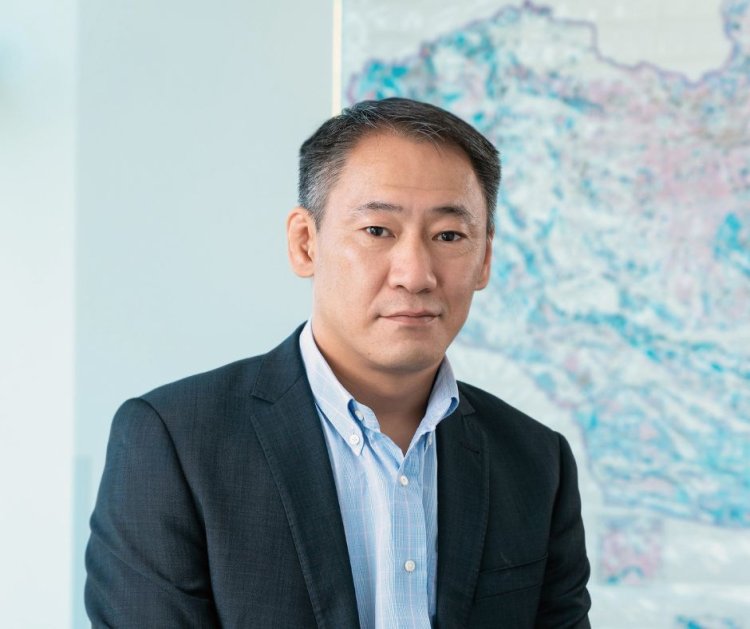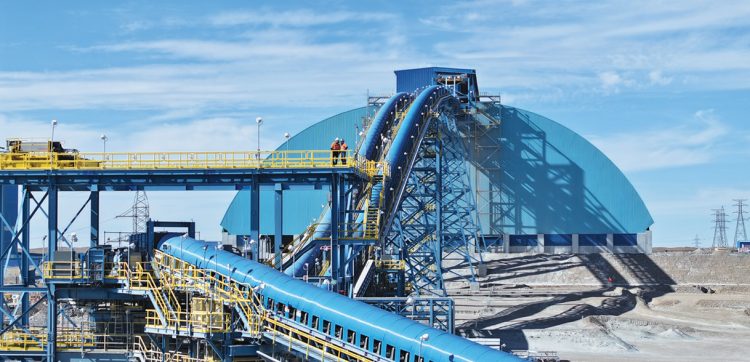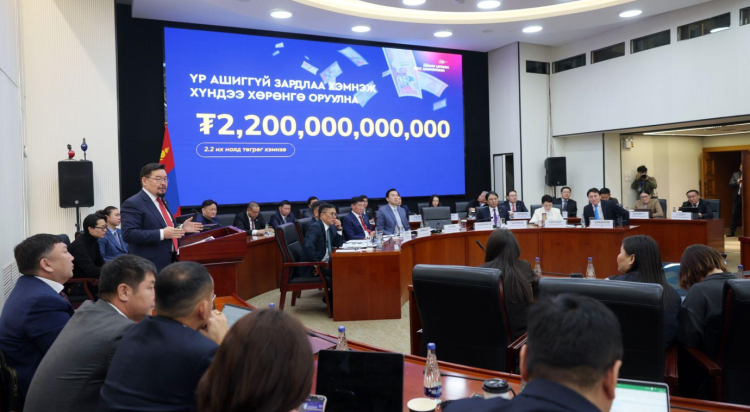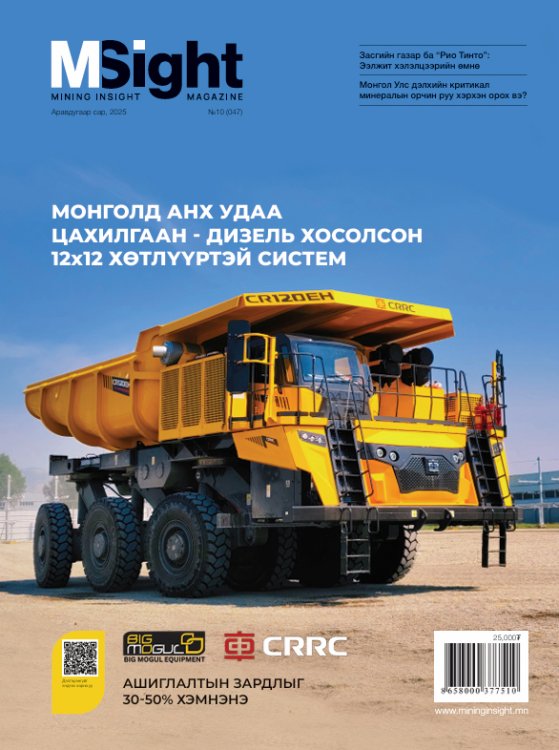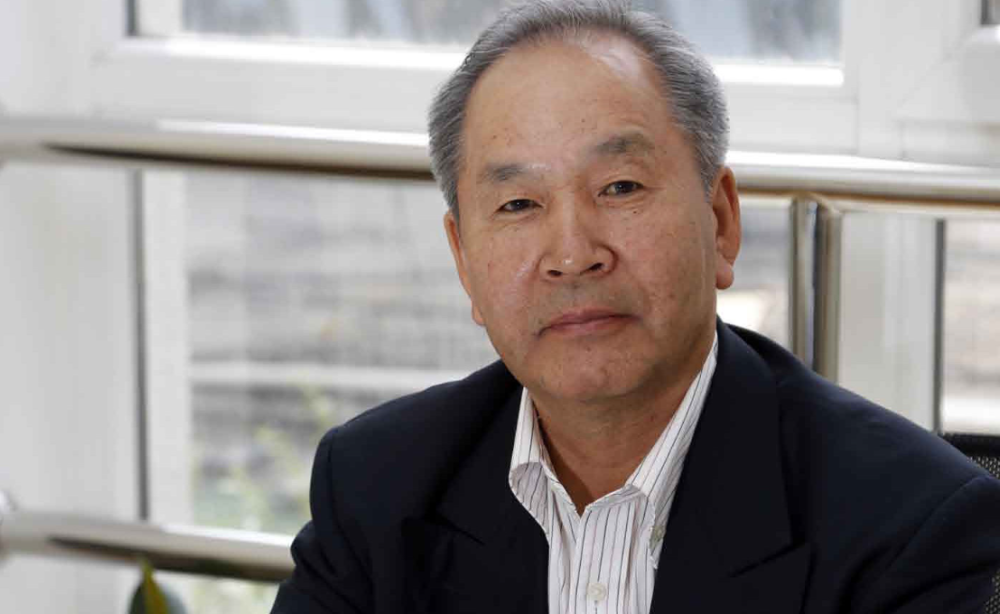 Mining Insight’s Odjargal.E interviewed the President of the Mongolian Exporters Association, Honored Trade Officer of Mongolia, Mining Consulting Engineer, Ph.D. Professor Galsandorj.D regarding the preparations of coal, iron ore, and fluorite concentrate trades, exchange infrastructure credentials, and operations under the Law on Mineral Commodity Exchange approved by the Parliament.
Mining Insight’s Odjargal.E interviewed the President of the Mongolian Exporters Association, Honored Trade Officer of Mongolia, Mining Consulting Engineer, Ph.D. Professor Galsandorj.D regarding the preparations of coal, iron ore, and fluorite concentrate trades, exchange infrastructure credentials, and operations under the Law on Mineral Commodity Exchange approved by the Parliament.Let’s start the interview with your experience dealing with the trading of copper and molybdenum concentrates on the London Metal Exchange (LME) when you worked as the head of the London representative office of Erdenet Mining Corporation (EMC) from 1993 to 2000.
I worked as the head of the department of the State Committee on Foreign Economic Relations, and as the head of the Department of Planning, Management, and Business Mechanisms at the Ministry of Economic Affairs and Supply, and was assigned to represent my country abroad as an economic adviser at the Mongolian Embassies in Czechoslovakia and U.K between 1989 and 1993. While taking part in the meeting of the LME in 1992, I met with the General Director Sh.Otgonbileg, and talked about how EMC is planning open a resident office in London to sell copper concentrate at a higher price to Socialist China and other western countries, build the necessary capacity, and acquire new technologies for mining operations and concentration plants. At that time, EMC did not take into account the price of metals such as gold, silver, and rhenium in copper concentrate, and supplied its products to Russian Ural copper at prices lower than the market average. After my tenure at the Embassy in London, I continued to work as the head of the London office of EMC for 8 years. EMC has been selling its copper concentrate to major buyers in Switzerland, France, South Korea, and the United States under the LME terms since 1993. The price of Mongolian copper concentrate follows the benchmark price of the pure copper price set by the LME, which trades exclusively in non-ferrous metals in futures and options contracts. I got to know the systems of trading mining products on exchanges and understood the benefits of the commodities exchange system.
Having led the first study on the possibility of establishing a Mineral Commodity Exchange in Mongolia, and as a member of the joint working group of the Ministry of Mining and Heavy Industry, and the Parliament on drafting this law, how would you see the importance of the exchange?
The commodity export in Mongolia lacks transparency. Foreign buyers, producers, and end users cannot directly purchase mining products from state-owned enterprises. Information about products, companies, and prices is inaccessible. Unfortunately, our high-ranking officials and politicians are heavily involved in the buyers’ selection, quote distribution, and contract terms. It has been going on like this for 30 years. Since traders or middlemen are still involved in the trade, our country continues to lose the opportunity to earn additional income in export trade. By having a Mineral Commodity Exchange, export trade will be open, transparent, and fair, ensuring market price. Business operations will be more open to a large number of producers and consumers through “one channel”. This is the main reason for establishing a mining exchange. The number of unnecessary posts in charge of trade and transport logistics in SOEs will be reduced, as well as the travel cost officials. Price information will quickly reach buyers. Producers, exporters, and buyers will be able to bid for prices on the exchange, allowing buyers to bargain based on the market supply and demand. Exchanges are a concentrated market for buyers. There are clear operational and commercial rules and product standards. The prices announced on the exchange are competitive prices based on actual market estimates. So, the current pricerelated issues will disappear in the future.
Since when did the discussion on the Mineral Commodity Exchange begin? The first draft was developed by the Mongolian Exporters’ Association, is that right?
Ten years ago, the government discussed a single-window policy for exporting mining products. In this context, the Ministry of Economy and Development announced open bidding for the study “Possibilities of establishing a mining exchange in Mongolia and international exchanges practices” in 2012, and the team from the Exporters’ Association was selected. While studying the activities and trading experience of international exchanges, our team issued the first draft of the mining exchange law. The revised draft of the law was introduced by the Ministry of Mining in 2015, but it did not receive support. So, the discussion on exchange law was renewed again at the Ministry of Finance in 2021, and the working groups have been working on drafting the law for about 2 years.
According to the Law on Mineral Commodity Exchange, what are the regulations specific to exchange operations and commodity trading?
Mongolia’s export of mining products is worth over USD 8 billion. According to the Law on Mineral Commodity Exchange, the types and quantities of products to be traded on the exchange shall be approved by the Government every year at the proposal of the Ministry of Mining and Heavy Industry. At first, the products such as coal, fluorspar, iron ore, iron concentrate, and copper concentrate exported by state-owned companies will be traded. In the first six months of this year, the government decided to trade 30% of the annual coal exported by ETT on the Mongolian Stock Exchange. The private sector and enterprises are open to trading their products at the exchange. Some private companies are interested in trading on the exchange from scratch. All mining commodities will be traded on the exchange under the Mongolia-China border terms. The exchange will announce the rate, which includes the costs of extraction and transportation of mining products. Accreditation of exchange shipping companies, testing laboratories, and product warehouses shall be done shortly.
Will the exchange be state-owned or publicly listed?
It is stipulated by law to be a legal entity with state involvement. It is necessary to develop and approve about 15 regulations for the operation and trading of the exchange. In this context, the government will probably decide on the state’s participation in the exchange. In general, Western countries with highly developed international markets, such as the Chicago Stock Exchange and the London Metal Exchange, have over 200 years of experience. These are mostly either joint-stock companies or privately owned. However, developing countries such as China, Russia, Uzbekistan, and Vietnam are established with 100 percent state ownership first, and after 3-5 years, when stock exchange trading stabilizes, the state institutions get involved in the operation.
How is the management structure of the exchange regulated by law?
The mining exchange has units and structures such as administration, human resources, commercial, market, and price research, settlement, training, and information units. The law provides for the appointment of five representatives from government institutions and four independent members from private organizations in the mining sector to the Board of Directors of the Exchange.
The Law on Mineral Commodity Exchange will officially come into force on June 30, 2023. What will be done within the six months until then?
As part of the implementation of the law, several preparatory works have been planned. Development of contract models for the sale and purchase of coal and other products. Accreditation of laboratories and infrastructure for setting product quality standards. Issuance of certificates to warehouses. Setting the most optimal, realistic, and cheap prices for transportation. Delivery of the product to the buyer within the time specified in the exchange trading contract, and in case of delays, a penalty shall be included. In other words, we need to create a commodity trading platform. According to the approved law, the Mineral Commodity Exchange will have its infrastructures such as warehouses, terminals, testing laboratories, and shipping companies. To create this structure, 15 regulations will be developed in this half-year to regulate private sector laboratories and industrial warehouses of international standards, accreditation of established and newly constructed terminals, and settlement of exchange trading. The Mineral Commodity Exchange will be considered fully operational once these are completed. According to international standards, all activities from extraction, transportation, loading, and unloading from the warehouse and port entry to the buyer are under the direct control of the exchange. With such electronic monitoring, it will be possible to put an end to the “lobbying” of politicians and civil servants.
How many countries have such experience in combining the stock exchange and mining exchange?
Over 200 mining commodity exchanges established internationally, and about 60 are active. Most are exchanges specializing in mining products. The LME specializes in non-ferrous metals. The London Bullion Exchange only deals in silver and gold. There is another one for oil. China’s Tianjin Mining Commodity Exchange trades fluorspar, iron ore, and coal, while the Dalian Commodity Exchange sells a few agricultural and mining commodities. The Australian stock exchange, in addition to corporate shares, also trades agricultural commodities and mining products.
Is there any platform for trading physical and future contracts of mining products at the Mongolian Stock Exchange?
The LME has a special platform for trading mining products called Millionum ITI. Our Mongolian Stock Exchange needs to develop a platform similar to this. Development means acquiring equipment and training personnel. Exchange trading should be done through an independent broker. Mineral Commodity Exchange brokers will receive a special license from the FRC. The broker company should have units well-versed in the quality and standards of mining products, studies the domestic and foreign markets and prices of mineral products, engages participants in exchange trading on a wider scale, conducts training on exchange trading, and provides participants with market price information. The Mongolian Stock Exchange needs to accredit the transportation companies specifically to the coal industry.
When do you think the mining exchange operations will commence real-time trading? Will the exchange belong to any ministry?
Mineral Commodity Exchange SOE will have to obtain rights to trade from the FRC. Initially, it would be more appropriate and beneficial for the stock exchange to trade coal on the Mongolian Stock Exchange on a trial basis, and when a variety of mining products are traded from July 2023, the exchange will operate independently. It is a common practice in developing and operating an international exchange. According to the policy of the Ministry of Mining and Heavy Industry, the Mineral Commodity Exchange will be managed and the FRC will supervise its daily operations. It is necessary for these organizations to jointly approve and organize accreditation procedures for mining exchange warehouses, laboratories, and shipping companies, and to create positions for exchange affairs in the Ministry of Finance soon. There is no preparation plan for all of this, and it is not yet clear which organization will be responsible for which issues.
Thank you for speaking with us.



